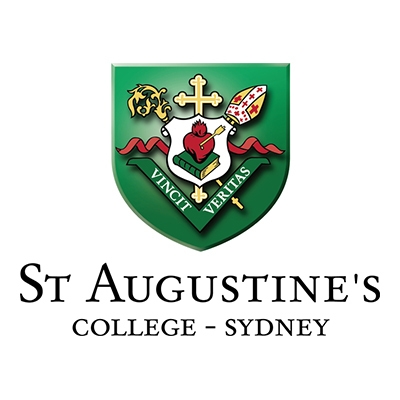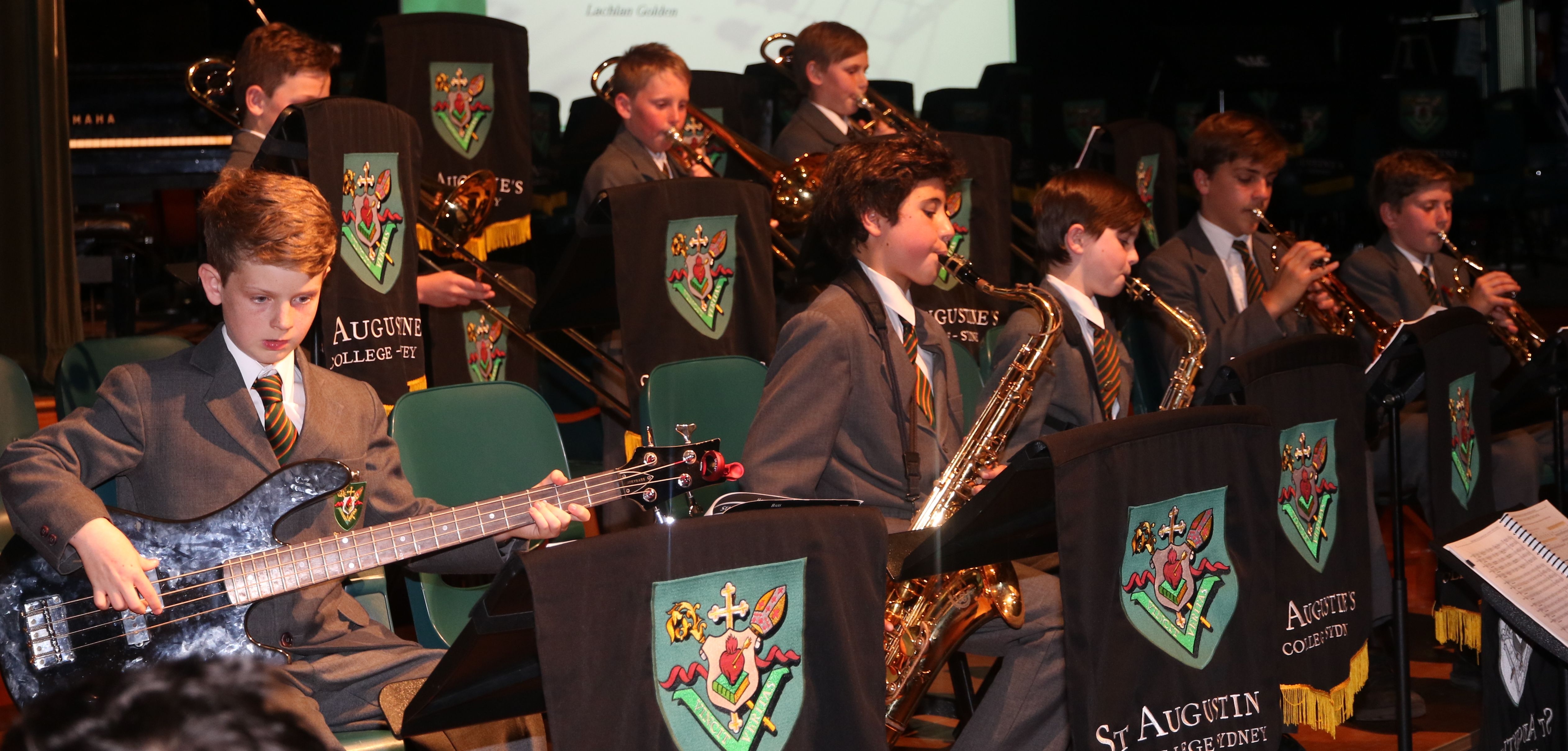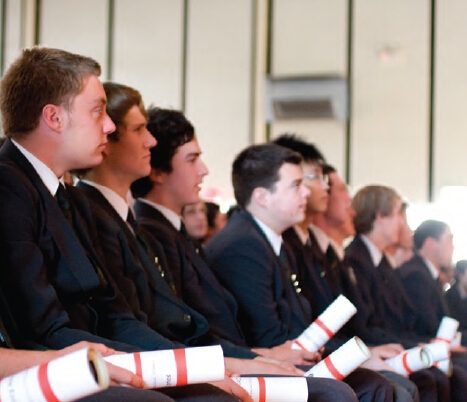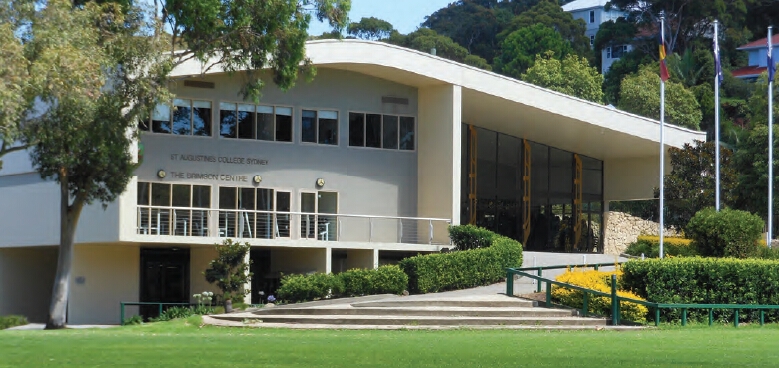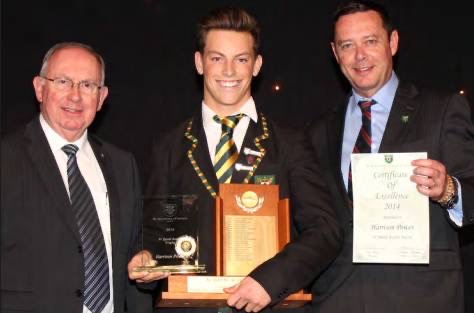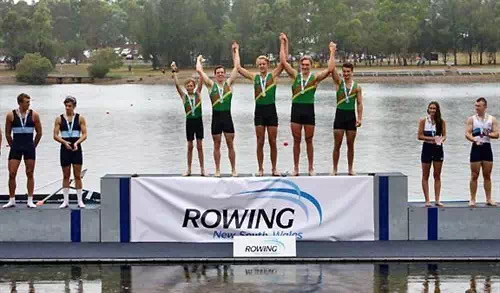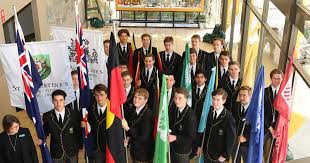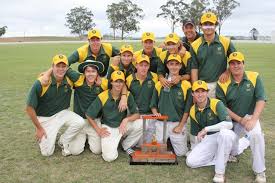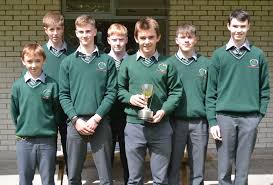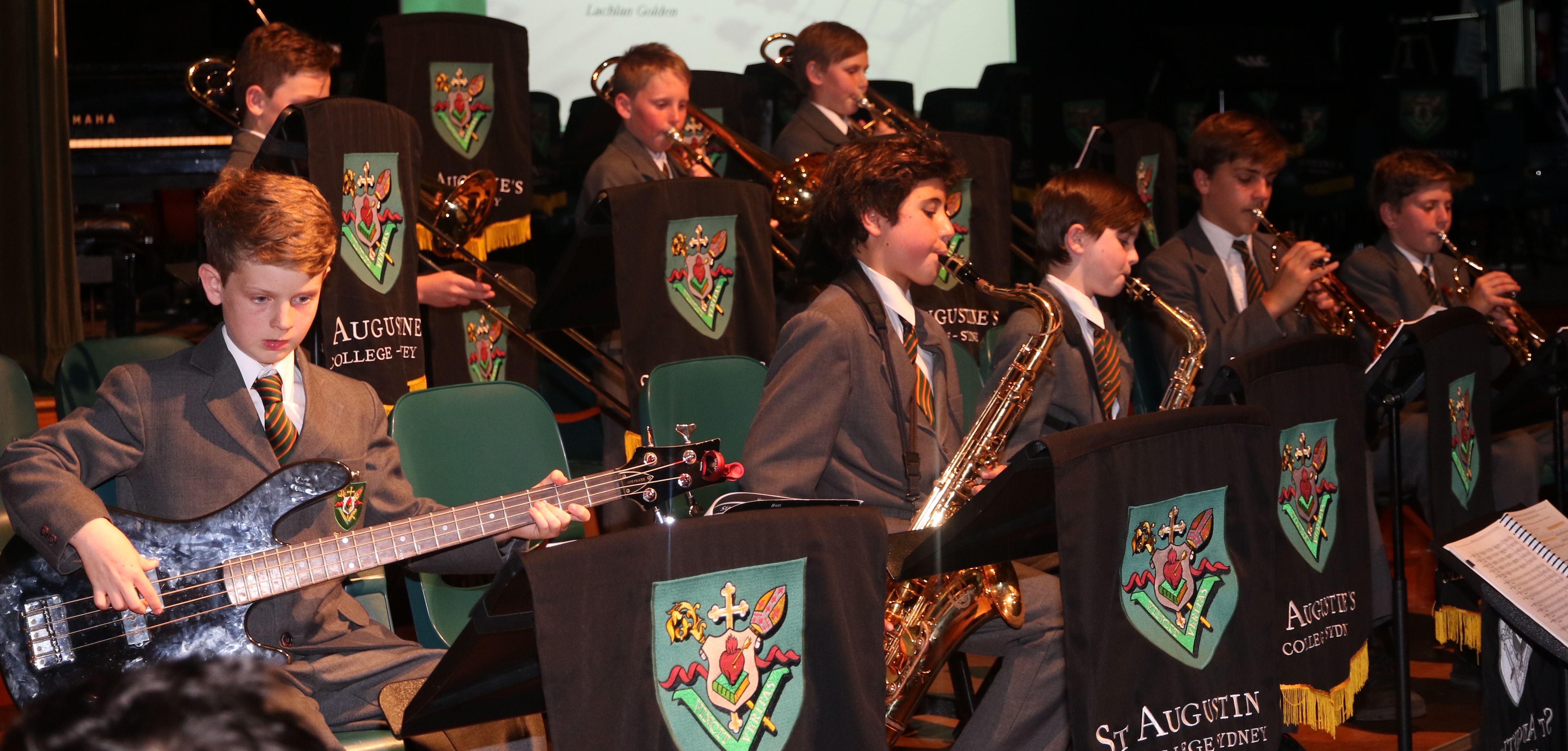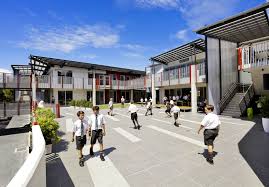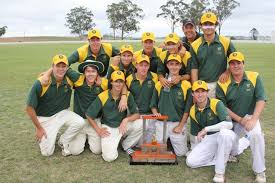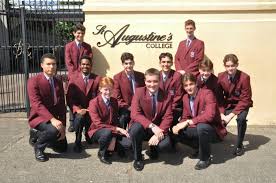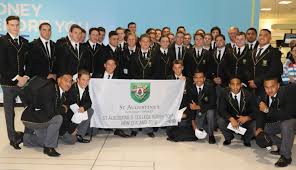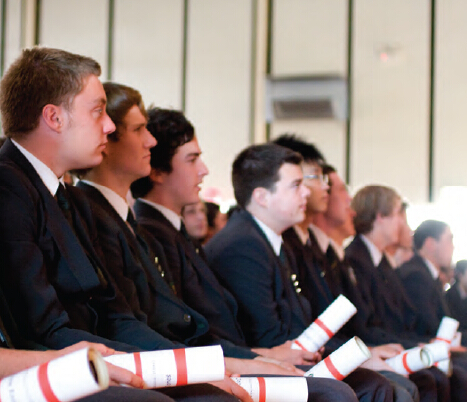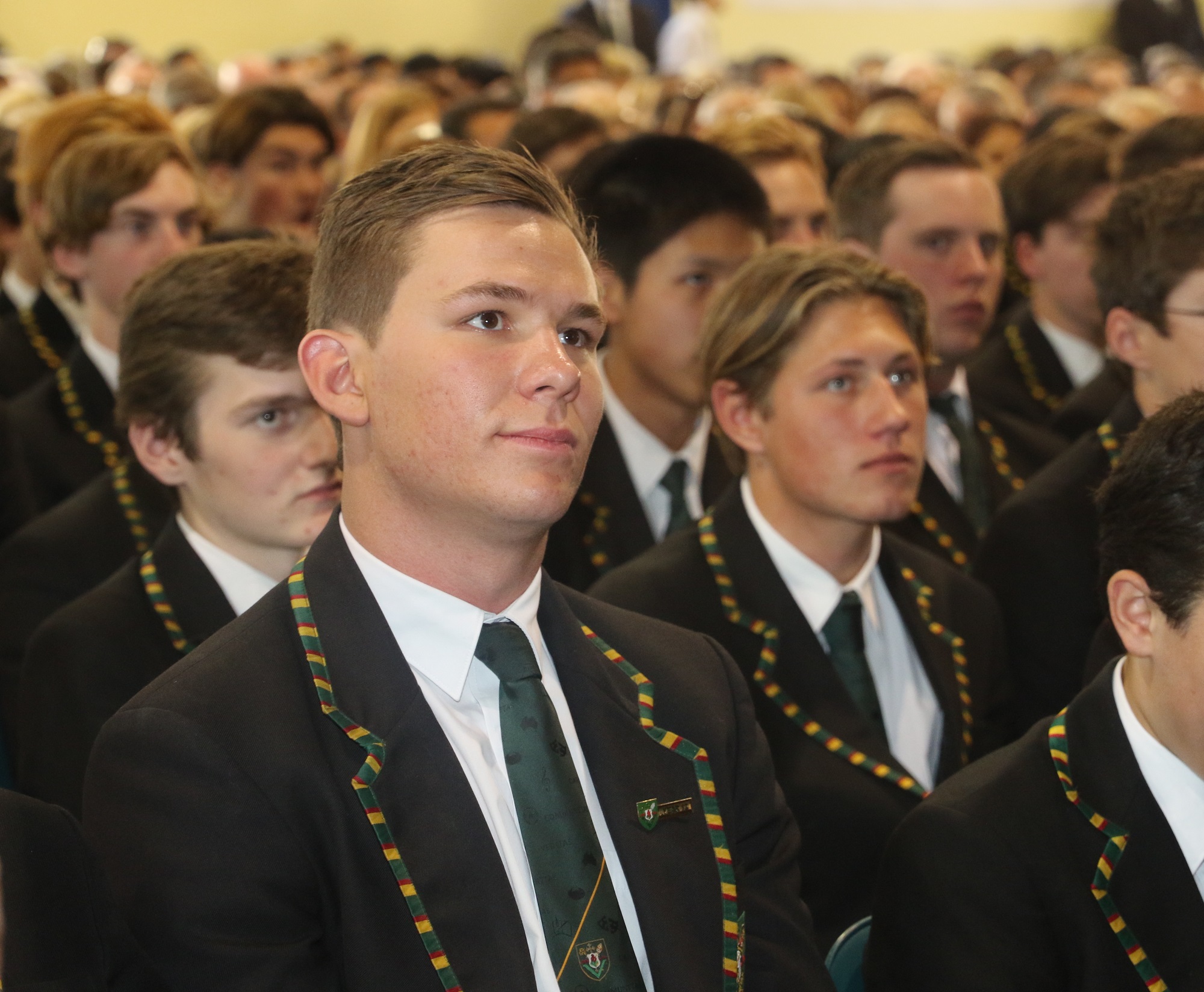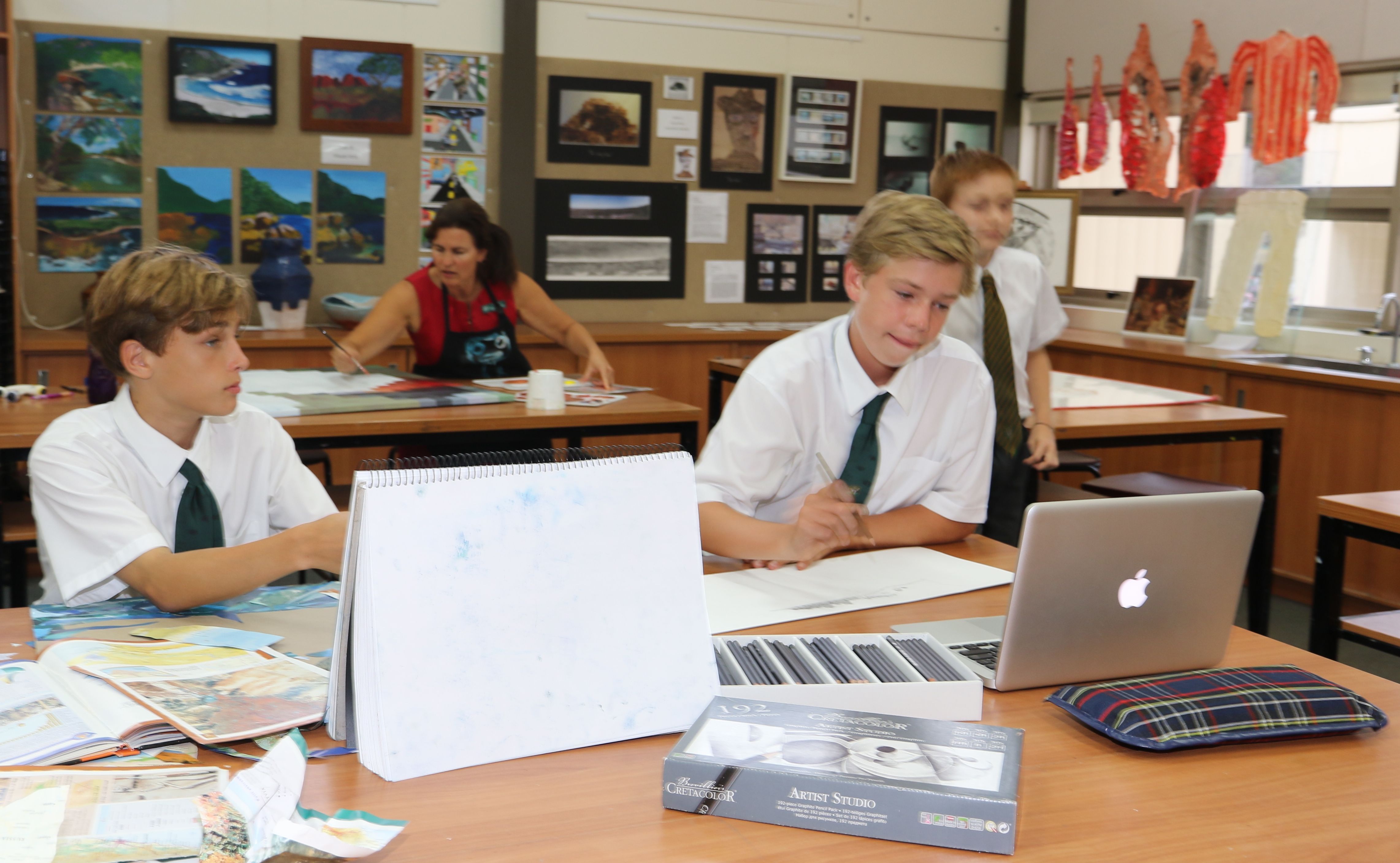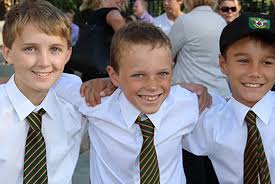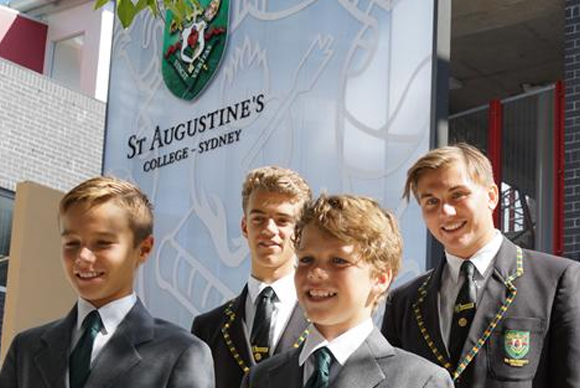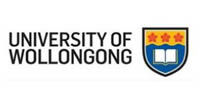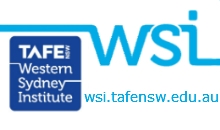St Augustine's College
Overview
List of Courses
Overview
St Augustine's College - Sydney is a Catholic school for boys in the Augustinian tradition, supporting young men in learning how to live with others. We equip them with the skills and a sense of responsibility to make their world a better place. With care, compassion and understanding as our hallmark qualities, we guide students as they grow in their faith, finding purpose and meaning, by engaging them to make gospel values real in their lives. St Augustine’s College is known for its strong sense of community care and spirit, strongly uniting students, families and staff. The enthusiasm displayed by our teaching staff and the boys pervades all areas of our community, setting the tone for a lively, stimulating and happy environment. We develop young men to become confident and have a genuine love of learning, working both autonomously and collaboratively, to be intellectually curious while being critical and independent thinkers.
The college is passionate about rigour and high achievement, creating a culture of learning and respect. An essential element of education involves instilling in the boys their personal attributes, along with a sense of responsibility, independence, resilience, concern and strong moral values. Respect is an integral part of the fabric of our College, where all students are respected regardless of their area of interest, whether it be academic, sporting, creative or cultural.
The students are the heart of everything the college does. Their journey is based on Catholic values in the tradition of Saint Augustine: a journey that is full of curiosity, diversity and discovery as it unearths interests and talents. We know this leads to producing Augustinian graduates who are thoughtful, happy, well-rounded, contributing members of community who are ready to make our world a better place.
The college encourage you to view all aspects of their website, engage with us and contact our Registrar via Admissions to arrange a tour of the College. When you join St Augustine’s College you will become a part of a global community of over 400 schools, universities and churches.
The college staff and students look forward to meeting you.
Description
What does love look like? It has the hands to help other and the feet to hasten to the poor and needy."
Saint Augustine
Our SEA Program (Service Education Awareness) filters through to many areas of the College, offering staff and students the opportunity to be involved in a range of social justice projects locally, nationally and overseas. Immersions have included the Philippines, Nepal, India, Africa, Vanuatu, Cambodia and in 2020 Arnhem Land, Northern Territory. These are valuable experiences for personal growth and contribute to making the world a better place.
We continually inspire and grow young minds as they mature into young adults. We will challenge your son to be curious, inventive and open to a wide world of knowledge. During his journey at St Augustine’s College your son will, through shared experiences and the many opportunities we offer, develop and achieve his dreams and make connections that will establish lifelong friendships.
Our class initiatives, excursions, incursions and overseas tours including sports, co-curricular, school exchanges, social justice, music, drama and varied faculty tours, offer authentic experiences that allow boys to place their life in a new context, encouraging them to think about the contributions they can make to society.
Overseas Immersions
Through the SEA Program, the College aims to provide staff and students with the opportunity to be involved in a range of social justice projects that, whilst allowing themselves to grow personally and learn through such experiences, assists to make the world a better place for those less fortunate than themselves.
Across a two-week period (approximately), staff and students will be immersed in another culture and walk alongside those less fortunate than themselves. Travelling to different parts of the globe and through first hand experiences participants will be challenged physically, emotionally and spiritually.
International Exchange
An international exchange is offered to our Year 10 students. These International Exchange Programmes are both educationally and personally beneficial. The opportunity to share community with a family from another country is a wonderful prospect. By staying in a host family’s home, sharing meals, exchanging views and participating in daily activities, the students will learn far more about their way of life than ever possible by reading a book or travelling as a tourist. In the past, students have returned from these exchanges with a tremendous sense of accomplishment and a renewed ability to develop independent opinions and make informed decisions. The two overseas schools involved are Glenstal Abbey and Malvern Preparatory school
Who was Saint Augustine ?
Named after two Roman Emperors, Aurelius Augustinus (Augustine) was born in Thagaste (in present day Algeria), North Africa on Sunday 13 November 354 A.D. His mother, Monica, was a Catholic Christian, and she instructed Augustine in the Christian religion and taught him how to pray. Monica was one of the greatest guiding forces in Augustine’s life. Through his mother he learnt about the Christian God and the values of a Christian life. His father, Patricius, was a pagan (no religion), however through the example and prudent conduct of his wife, Saint Monica, he was baptised prior to his death.
Adolescence can be a difficult time for any person, and Augustine was no exception. Augustine was a very intelligent student, but he was lazy. As a young man he was more interested in partying than anything else. He was passionate, naughty, craved pleasure, hated pain. He loved knowledge, but hated study, he had an intense feeling for life in all its facets. Whilst this demonstrated he was very human, Monica was troubled that Augustine was living recklessly and continually prayed that he would change his ways.
However, the education he received before turning himself into an exceptional scholar was not as outstanding as his God-given gifts, and Augustine was fascinated by the world of literature. His studies of the Latin language, and reading of Cicero influenced him to study philosophy - the study and the seeking of wisdom. When his period of full-time education ended, Augustine became a teacher in Thagaste in 374 A.D.
For 33 years he had lived a life of experimentation and those who associated with him would never have believed that he would become an ‘intellectual champion’ of the Christian faith. Augustine became torn between his ambition for his promising career as a teacher and the pursuit of spiritual and personal truth and wisdom.
Augustine came under the influence of The Bishop of Milan, St Ambrose, who went on to become his good friend and mentor. When reading the letters of Paul in the Bible, a constant nursery rhyme chanted to him “Tolle Lege” (take and read), and from this a miracle happened, and the heart of Augustine was now for Christ. After this conversion experience, Augustine broke with his old life. He was finally baptised at the age of 33, along with his good friend of 15 years Alypius, and Adeodatus his son, then aged sixteen years.
Upon visiting Hippo in Africa, his homeland, he was strongly pressured by the people that the local community needed him to be their priest and was ordained at the age of 36. Five years later he was made a Bishop in Hippo.
Augustine remained in Hippo for the rest of his life. He wrote 232 books and in excess of 500 sermons. He wrote honestly, not denying his faults and failings, and this enables us to closely identify with the life of Augustine. After the Bible, his book 'The Confessions', was for centuries the world’s second-best seller. This book describes how he learnt the hard way, through disappointments and frustrations, and describes his life, his mother who never deserted him, his good friend Alypius, his son Adeodatus, and finally his developing friendship with his mentor St Ambrose.
He died at the age of 76 on 28 August (his feast day), 430 A.D, which we celebrate each year at the College.

